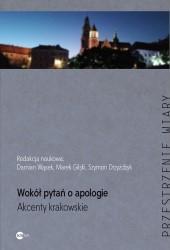The Role of Paradigm in Theological Research
Synopsis
In his book The Structure of Scientific Revolutions, Thomas Samuel Kuhn formulated one of the most influential concepts of the development of science. According to this concept, which originally pertains to the natural sciences, science progresses cyclically through three stages: “normal science”, crisis, and scientific revolution. Each scientific revolution is associated with a paradigm shift, which involves a change in the set of beliefs, values, and techniques shared by the members of a scientific community. The paradigm accepted by the scientific community defines the current state of knowledge and serves as a tool for solving existing scientific problems. A paradigm shift, however, entails not only a revision of theories but also a transformation of the world itself, which begins to appear entirely new. The aim of this paper is to demonstrate that although Kuhn’s concept directly relates to the natural sciences, under certain conditions, it could also reflect the mechanism by which theology develops. The recent statements of Pope Francis, particularly the apostolic letter Ad theologiam promovendam, encourage the development of theology through a constructive dialogue with various traditions and contemporary fields of knowledge, and, if necessary, to embrace a paradigm shift and a “courageous cultural revolution.” This paper presents two significant examples of paradigm shifts in the history of theology resulting from a theological crisis: in cosmology – the shift from geocentrism to heliocentrism, and in anthropology – the shift from monogenism to polygenism. These examples illustrate that a paradigm shift does not necessarily involve the negation of any dogma. On the contrary, by leading to a new understanding of certain truths, a paradigm shift contributes to the continuity of Catholic doctrine.



